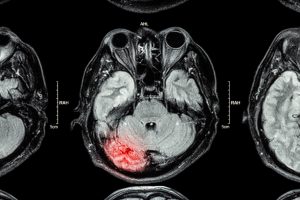You may have heard people use the nickname “invisible injury” to describe a brain injury. When you see a person wearing a cast, you know they have a broken limb. It is not the same for people suffering from a brain injury. We can see how a person is affected, but not the injury causing the symptoms. A recent national tragedy can serve as an example.
In January of 2011, former U.S. Representative Gabrielle Giffords was tragically shot by a madman while she was giving a speech at Congress on Your Corner in Tucson, Arizona. Giffords narrowly survived after being shot in the head.
For the next several months, Giffords spent time recovering in the hospital. Doctors diagnosed her with aphasia, a disorder common in people who have suffered severe brain injuries. Aphasia is a disorder that creates difficulties speaking or understanding language. Problems with reading or writing are also common.
At the beginning of her recovery, Giffords used single words and short phrases to converse with people. This had nothing to do with her intelligence, but instead the way her brain processed language. Two million Americans suffer from aphasia. Many of them suffered strokes, survived auto accidents or experienced blunt-force trauma.
How Do Invisible Injuries Affect Accident Survivors?
Someone that suffered a brain injury due to the negligence of another person can be robbed of his or her quality of life. The ability to work and maintain a social life can disappear overnight. Family members of people with brain injuries may also have their lives affected.
In the case of Gabrielle Giffords, she was a rising star in the Democratic Party. Her husband, Mark Kelley, was a successful astronaut. Both had the course of their careers altered.
Family members of people who have survived work or auto accidents may experience the same hardships. People who are affected by invisible injuries may go through the same difficulties. When trial lawyers fight for victims, they are fighting to improve the quality of life for them and their families.

